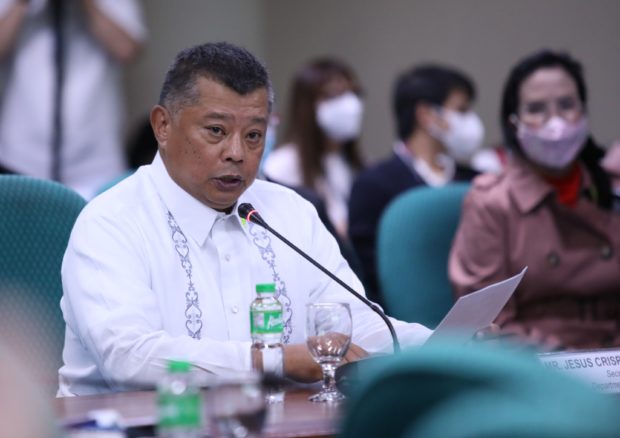
Justice Secretary Jesus Crispin Remulla (Albert Calvelo/Senate PRIB)
MANILA, Philippines—The Department of Justice (DOJ) has issued a circular decreasing the bail for indigents facing criminal cases to a maximum of P10,000.
Department Circular No. 11, dated February 20 requires all prosecutors to take into consideration the financial capacity of the respondents before recommending the amount of bail if the case will be filed in court.
“In the event that, after the conduct of inquest or preliminary investigation proceedings, the investigating prosecutor finds probable cause with a reasonable certainty of conviction against the indigent respondent, he or she shall indicate in the criminal information only fifty percent (50%) of the recommended bail as stated in the 2018 Bail Bond Guide, or the amount of ten thousand pesos (P10,000.00), whichever is lower,” read section 4 of the circular.
At the start of the inquest or preliminary investigation, the prosecutor shall inquire if the suspect is indigent and shall be required to present proof such as the latest Income Tax Return, pay slip, or other suitable proof of income such as certificate of indigency from the Department of Social Welfare and Development; and Certificate of Indigency/No income from the Office of the Punong Barangay.
The DOJ Circular did not mention the nature of the offense. It has only set a cap of P10,000.
“Kapag non-bailable tapos na yun, wala ng paguusapan, pero kung bailable ay sana kayang maabot naman kung ang tao hindi tatakas at makakapagpyansa, bakit hindi natin bigyan ng pagkakataon yung mga hirap sa buhay,” Justice Secretary Jesus Crispin Remulla told reporters.
[If the offense is non-bailable, there is nothing more to talk about. But if the offense is bailable and the respondent is willing to post bail and will not escape, why don’t we give those financially challenged to afford bail.]
“It is very inhuman to have a very prohibitive bail system. It is actually a denial of a right,” Remulla told reporters.
The circular, according to the DOJ is effective immediately.
Remulla said it was Chief Justice Alexander Gesmundo who made the proposal to revisit the 2018 Bail Bond Guide during the Justice Sector Coordinating Council dialogue last Jan. 27.